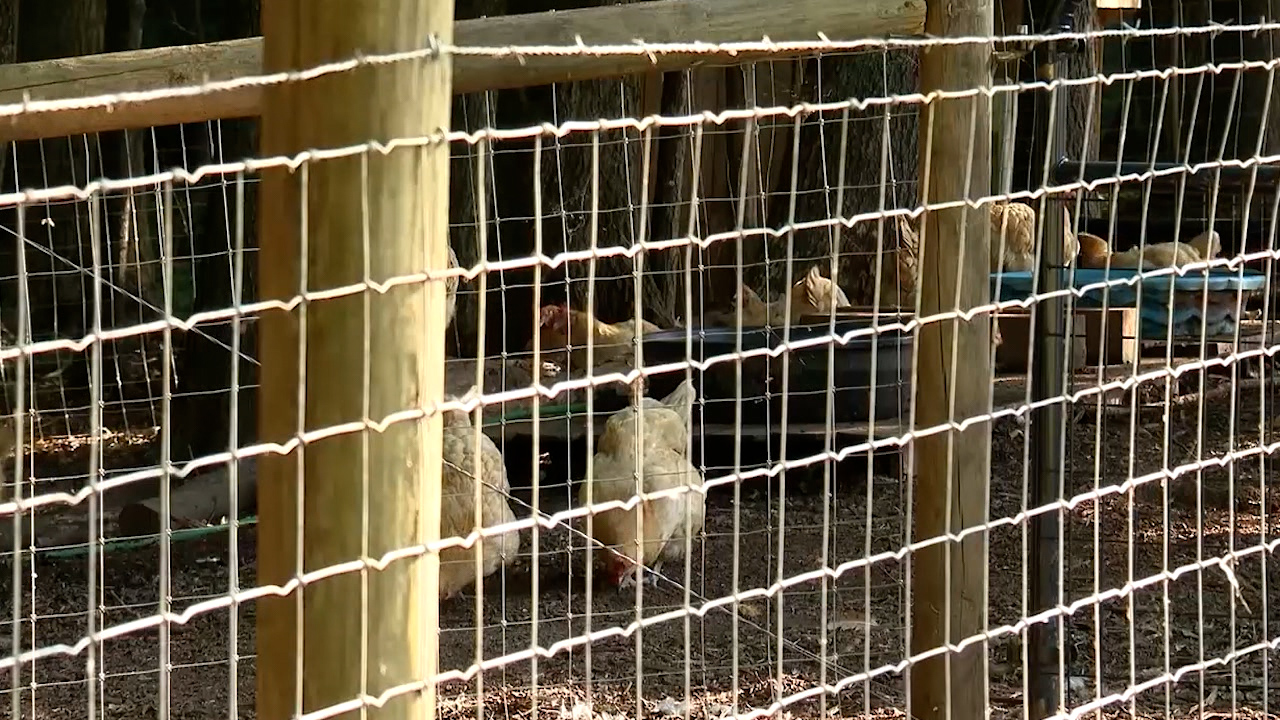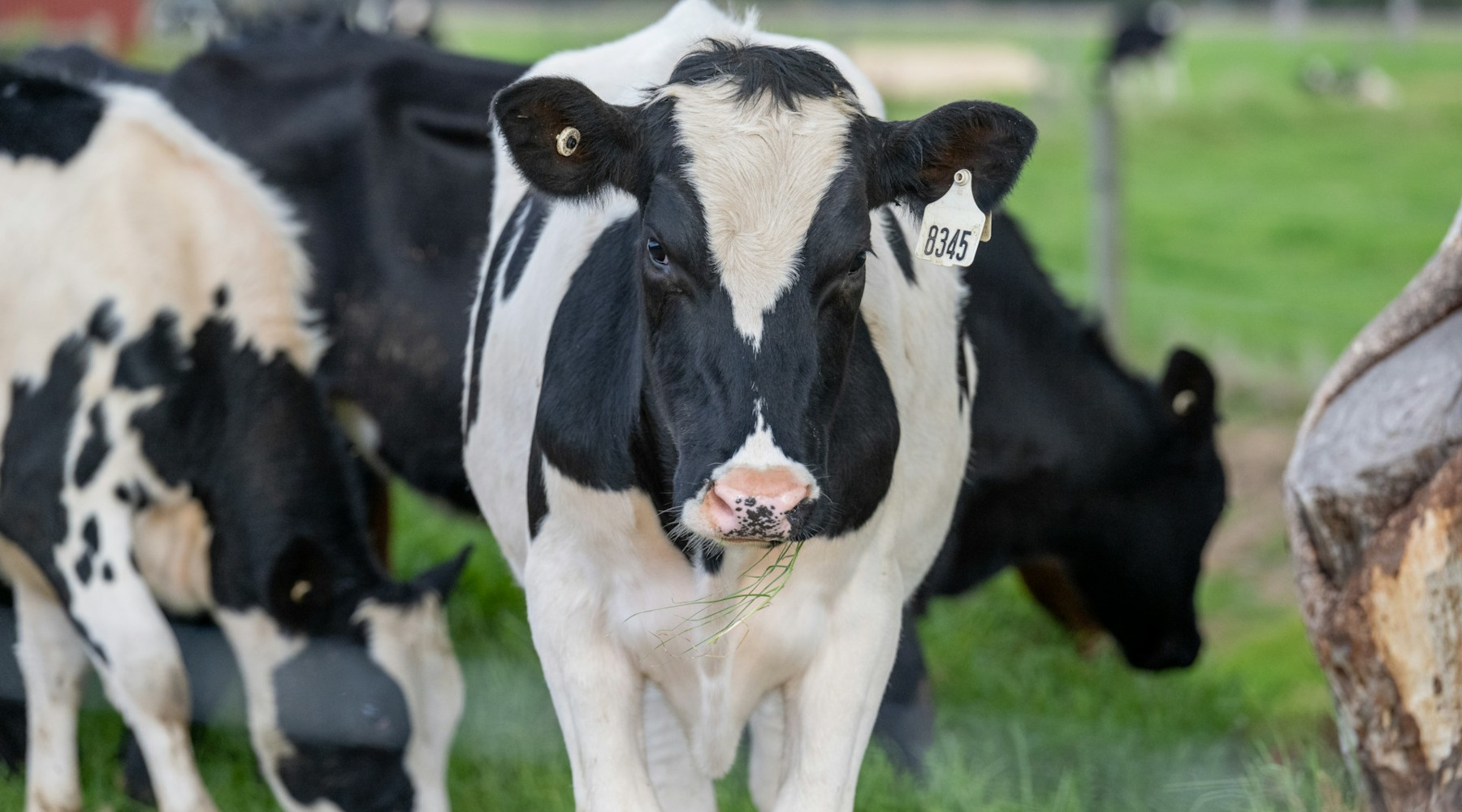Health
COVID-19 variants on the rise, as B.C. records 564 new cases and 4 more deaths – CBC.ca

B.C. could be looking at a “post-pandemic world” this summer if the province’s vaccine rollout continues on the right track, Provincial Health Officer Dr. Bonnie Henry said Thursday.
It was a glimmer of good news as health officials announced 564 new cases of COVID-19 and four more deaths on Thursday.
However, the number of variants of concern continues to climb. Of the new cases, 46 were identified as variants, bringing B.C.’s total to 246.
There are 248 people in hospital, 63 of whom are in intensive care. There are currently 4,743 active cases of COVID-19 in B.C. and 8,659 close contacts of confirmed cases are being monitored by public health.
A total of 1,376 people in B.C. have died of the disease since the pandemic began.
The rolling average of new cases, as well as the number of active cases are at their highest point since Jan. 13 and the number of hospitalizations is the highest since Feb. 5.
During Thursday’s live briefing, Henry said the COVID-19 variants of concern are highly contagious and the province is having difficulty identifying the chains of transmission for about 25 per cent of them.
Henry expressed optimism for the province’s vaccine rollout, saying the province will look at revising current timelines as more vaccines become available.
So far, 298,851 doses of a COVID-19 vaccine have been administered, including 86,746 second doses.
Earlier this week, the province announced an accelerated vaccination timeline and said it would extend the time frame between the first and second doses by up to four months in an effort to ensure more people can get their first vaccine quickly.
The AstraZeneca-Oxford vaccine is expected to arrive next week, Henry said. It will be given, in the short term, to address clusters of cases, including persistent outbreaks in the Lower Mainland.
It will also be given to essential groups at high risk of transmission and other priority populations. This includes first responders and essential workers, who will have access to this vaccine separate from the current age-based vaccine delivery system, Henry said.
Henry said she expects the single-dose Johnson & Johnson vaccine will be approved soon in Canada. All of the vaccines available are effective, she said, and anyone who is offered one should accept it.
Henry apologized Thursday to British Columbians who recently had appointments for their second doses cancelled. She said decisions had to be made quickly and eclipsed communication, but that it was made in the spirit of “understanding data and maximizing the benefit to all of us.”
“That dose you didn’t receive … is now being administered to a community member, to another member of our family, our community here in B.C. to protect them,” Henry said.
“Ultimately, it will bring us all closer to getting to our post-pandemic world.”
Vaccine timeline could change
Henry has said that any eligible adult who wants a COVID-19 vaccine in British Columbia should be able to receive their first dose by July, in light of the approval of the new AstraZeneca-Oxford vaccine and the decision to delay second doses.
Asked whether there was a chance the timeline might be modified so that young people could get their first dose in the summer, Henry said she hopes that could happen “before the summer.”
“We are looking at revising the timelines,” she said.
“We’re going to be in our post-pandemic world by this summer if things continue to go the way we want them to.”
Earlier this week, Henry and Dix signalled that current restrictions on everyday life will not be lifted in the near future — or at least not until a much larger portion of the population has been vaccinated.
On Thursday, Henry acknowledged there could be unforeseen complications but said the province is doing its best to ensure the vaccine rollout happens smoothly.
“I think by the summer we’re going to be able to do a lot more of those connections that we need,” she said.
Until then, she urged British Columbians to abide by measures like physical distancing to keep transmission low.
“We are in a new place right now in the COVID-19 pandemic,” Henry said.
“We can’t let the successes of these great vaccines that we have now be diminished by a surge in cases.”
CBC British Columbia is hosting a town hall on March 10 to answer your COVID-19 vaccine questions. You can find the details at cbc.ca/ourshot, as well as opportunities to participate in two community conversations on March 3, focused on outreach to Indigenous and multicultural communities. Have a question about the vaccine, or the rollout plan in B.C.? Email us: bcasks@cbc.ca
Health
It's possible to rely on plant proteins without sacrificing training gains, new studies say – The Globe and Mail


At the 1936 Olympics in Berlin, a scientist named Paul Schenk surveyed the eating habits of top athletes from around the world. The Canadians reported plowing through more than 800 grams of meat per day on average; the Americans were downing more than two litres of milk daily.
While there have been plenty of changes in sports nutrition since then, the belief that meat and dairy are the best fuel for building muscle persists. These days, though, a growing number of athletes are interested in reducing or eliminating their reliance on animal proteins, for environmental, ethical or health reasons. A pair of new studies bolsters the case that it’s possible to rely on plant proteins without sacrificing training gains, as long as you pick your proteins carefully.
The standard objection to plant proteins is that they don’t have the right mix of essential amino acids needed to assemble new muscle fibres. Unlike animal proteins, most plant proteins are missing or low in at least one essential amino acid.
In particular, there’s one specific amino acid, leucine, that seems to play a special role in triggering the synthesis of new muscle. It’s particularly abundant in whey, one of the two proteins (along with casein) found in milk. That’s why whey protein is the powdered beverage of choice in gyms around the world, backed by decades of convincing research, which was often funded by the dairy industry.
But one of the reasons whey looks so good may be that we haven’t fully explored the alternatives. A 2018 study by Luc van Loon of the University of Maastricht in the Netherlands, for example, tested nine vegetable proteins including wheat, hemp, soy, brown rice, pea and corn. To their surprise, they found that corn protein contains 13.5 per cent leucine – even more than whey.
Based on that insight, van Loon decided to pit corn against milk in a direct test of muscle protein synthesis. Volunteers consumed 30 grams of one of the proteins; a series of blood tests and muscle biopsies were collected over the next five hours to determine how much of the ingested protein was being turned into new muscle fibres. The results, which appeared in the journal Amino Acids, were straightforward: Despite all the hype about whey, there was no discernible difference between them.
A second study, this one published in Medicine & Science in Sports & Exercise by a team led by Benjamin Wall of the University of Exeter in Britain, had similar findings. Instead of corn, it used a mix of 40 per cent pea, 40 per cent brown rice and 20 per cent canola proteins. Since different plants have different amino acids profiles, mixing complementary proteins has long been suggested as a way overcoming the deficiencies of any single plant protein. Sure enough, the protein blend triggered just as much new muscle synthesis as whey.
On the surface, the message from these studies is straightforward: Plant proteins are – or at least can be – as effective as even the best animal proteins for supporting muscle growth. There are a few caveats to consider, though. One is that the studies used isolated protein powders rather than whole foods. You would need nearly nine cobs of corn to get the 30 grams of protein used in van Loon’s study, compared to just three-and-a-half cups of milk.
Another is that plants are generally harder to digest, meaning that not all the amino acids will be usable. That may not be a problem for healthy young adults consuming 30 grams of protein at once, which is enough to trigger a near-maximal muscle response. But for older people, who tend to have blunted muscle-building responses to protein, or in situations where you’re getting a smaller dose of protein, the details of protein quality may become more important.
Of course, the effectiveness of plant proteins won’t be news to notable plant-based athletes such as ultrarunner Scott Jurek or basketball star Chris Paul – but it’s encouraging to see the science finally begin to catch up.
Alex Hutchinson is the author of Endure: Mind, Body, and the Curiously Elastic Limits of Human Performance. Follow him on Threads @sweat_science.
Health
See how chicken farmers are trying to stop the spread of bird flu – Fox 46 Charlotte


CLOVER, S.C. (QUEEN CITY NEWS) — Poultry farmers across the Carolinas aren’t taking any chances. Many are turning to strict protocols as another wave of bird flu continues to threaten the chicken population across the country.
Since 2022, it is estimated more than 90 million birds have either died from the virus or were killed to prevent further spread in the U.S.
“We try to make them the happiest as possible. We always say a happy chicken is a tasty chicken,” owner of Eden Farms Adam Shumate said.
With their happiness in mid, Shumate also wants to keep his chickens alive and healthy. On his farm in Clover, he has implemented protocols to minimize a potential bird flu outbreak.
“We want to be prepared,” he said. “We feel like the things that we can do to prevent it first is the best case because we don’t want to start from scratch with a whole new flock.”
Because bird flu is commonly spread through bird droppings, Shumate is limiting the number of people coming into contact with his flocks. He says this would minimize the chances of someone walking onto the property with bird droppings on the bottoms of their shoes.
On top of monitoring the chickens closely, Shumate and his staff are constantly cleaning their equipment, including what they wear on their feet.
“We have specific shoes that are just for working with the flock and for when we are taking care of them,” Shumate said.
Other farmers, like Holly Burrell, haven’t let a visitor step foot near her hens in Gastonia for more than two years.
No visitors or outside cars are welcomed, and her chickens are separated in what she calls “tent cities.”
“We don’t want to do that because we want them to live their best life,” Burrell said in a 2022 interview with Queen City News.
Recently, health officials have detected bird flu in other animals like seals, squirrels and dolphins.
Earlier this month, bird flu was detected in one of the state’s dairy cow herds. While concerning, state health officials say the overall risk to the general public remains low.
“I’ve not heard of any cases, zero cases of people being affected by this virus associated with food consumption, milk consumption with egg consumption… any of these products we’re getting from farm animals is not really been associated with any human risk at this point,” said Dr. Michael Martin, director of the Veterinary Division at the N.C. Department of Agriculture and Consumer Services.
As of March 28, at least 80 birds in North Carolina were detected with the virus. Back in York County, Shumate says it all starts with the individual farms.
“When it comes to wildlife and things that that, there is only so much that you can do is be observant,” Shumate said. “Keep a healthy flock that way they can find off the infections that may come about.”
Health
CFIA Monitoring for Avian Influenza in Canadian Dairy Cattle After US Discoveries – Morning Ag Clips –


From the field to your inbox, the Weekend Edition of the Morning Ag Clips features stories, trends, and unique perspectives from the farming community. This laid-back edition is great for anyone looking for a fun weekend read.
Morning Ag Clips. All ag. All the time.
-
Business8 hours ago
Honda to build electric vehicles and battery plant in Ontario, sources say – Global News
-



 Science9 hours ago
Science9 hours agoWill We Know if TRAPPIST-1e has Life? – Universe Today
-
Investment12 hours ago
Down 80%, Is Carnival Stock a Once-in-a-Generation Investment Opportunity?
-



 Science23 hours ago
Science23 hours agoWhite House directs NASA to create moon time – The Tartan
-
News13 hours ago
Honda expected to announce multi-billion dollar deal to assemble EVs in Ontario
-
Business20 hours ago
Elon Musk comments on Tesla’s pricing strategy following cuts – TESLARATI
-
Art19 hours ago
‘Luminous’ truck strap artwork wins prestigious Biennale prize in first for New Zealand – The Guardian
-



 Sports19 hours ago
Sports19 hours agoJets score 7, hold off Avalanche in Game 1 of West 1st Round – NHL.com





